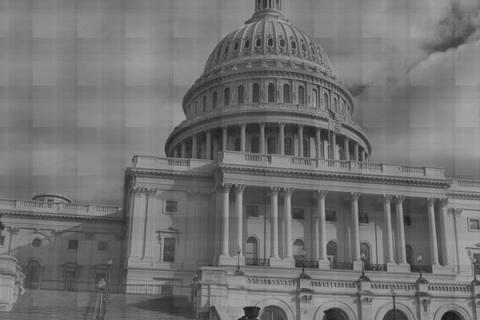Yesterday's overturning of Proposition 8 by District Judge Vaughn Walker is practically predestined for resolution before the United States Supreme Court. The decision is sure to be hotly debated for months on end, and is almost certainly going to become an election issue this fall. As such, a little analysis of the decision itself, and of the potential political fallout that will result, is only necessary.
At the level of raw legal theory, the decision has advanced a radically new claim – namely, that a law can fail what is referred to in legalese as the “rational basis test.” The test itself, which is the least restrictive test for Constitutionality available, dictates that a law passed at the state level is Constitutional if it has a rational reason behind it, or if someone could imagine a rational reason behind it.
It must be noted that “rational” does not mean "good" – all sorts of feats of insane troll logic have previously been permitted under the test. As such, to say that a law must pass the rational basis test in the past has more or less meant that the law will be declared Constitutional no matter what.
Walker’s opinion clearly attempts to put an end to that style of jurisprudence. He writes:
“Proposition 8 fails to advance any rational basis in singling out gay men and lesbians for denial of a marriage license. Indeed, the evidence shows Proposition 8 does nothing more than enshrine in the California Constitution the notion that opposite sex couples are superior to same-sex couples. Because California has no interest in discriminating against gay men and lesbians, and because Proposition 8 prevents California from fulfilling its constitutional obligation to provide marriages on an equal basis, the court concludes that Proposition 8 is unconstitutional.”
This is a legally stunning move on Walker’s part, not least of all because of the number of assumptions it contains. However, the mere fact that he claims Proposition 8 cannot advance any rational basis will invite a great deal of legal criticism and review, given how much of a departure it is from previous precedent.
And what of the political implications for the decision?
Here, matters are even more complicated, and heavily contingent upon whether Walker will grant a stay on his ruling until the case has had time to be tried in the 9th Circuit Court of Appeals. If he does, then it is highly likely that gay rights proponents will be mobilized at the ballot box, given that their unions will still be illegal until such time as the 9th Circuit can rule, making participation in the democratic process that much more vital. On the other hand, if Walker’s ruling is not stayed, it may generate complacency on the part of pro-gay rights groups while energizing social conservatives.
The former of these results is likely to lead to a close election, and will harden the prospects of many Republican candidates, who will have to strike a balance between appealing to California’s socially liberal electorate and keeping their own base. On the other hand, the latter of these results may polarize the election entirely, resulting in a costly and destructive battle over social questions that historically have favored Democrats in California.
Either way, Proposition 8 is back from the grave, and ready to bring legal turmoil and electoral chaos in its wake.

